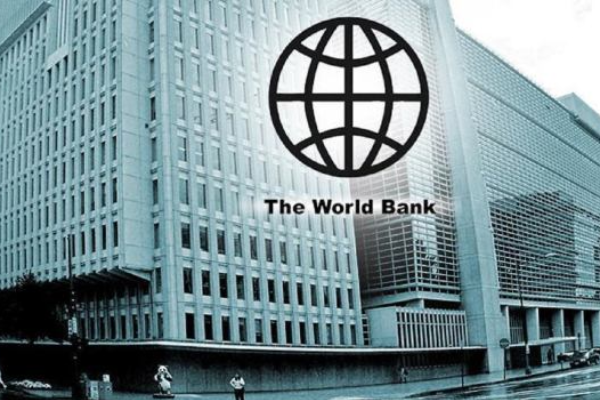The World Bank has projected that Nigeria’s economy will experience a slow growth in 2023.
In a report titled African pulse, the global financial institution revealed that the country’s growth rates will be reduced from 3.3 percent to 3.2 percent in order to alleviate rising inflationary pressures.
The report also shows that South African economy will awaken further to 1.4 percent in 2023 from its current 1.9 percent due to structural constraint but will rebound to 1.8 percent in 2024. while the recovery from the pandemic shock is incomplete higher inflation which reduces consumers disposable income lingering effects of aggressive monetary policies, the deteriorated labor market and weak confidence will weigh in on growth and private consumption in both countries, according to the World Bank.
[wonderplugin_video iframe=”https://youtu.be/IXc9X5QSl3o” lightbox=0 lightboxsize=1 lightboxwidth=960 lightboxheight=540 autoopen=0 autoopendelay=0 autoclose=0 lightboxtitle=”” lightboxgroup=”” lightboxshownavigation=0 showimage=”” lightboxoptions=”” videowidth=600 videoheight=400 keepaspectratio=1 autoplay=0 loop=0 videocss=”position:relative;display:block;background-color:#000;overflow:hidden;max-width:100%;margin:0 auto;” playbutton=”https://www.tvcnews.tv/wp-content/plugins/wonderplugin-video-embed/engine/playvideo-64-64-0.png”]
Nigeria’s external reserves have fallen by 2.2 billion dollars to a 3.8.31 billion dollars in September 29
2022 as against the 40.5 billion dollars recorded as of December 31 2021.
According to the latest reports from the central Bank of Nigeria, this is 5.42 decrease in foreign reserves in one year
after the reserves are plunged by 706 million dollars last month, despite rise in oil prices this year Nigeria’s
foreign exchange reserves have been depleted by billions of dollars.
The report also shows that the Nigerian economy is suffering from a lack of foreign exchange as currency Traders continue to complain about limited Forest liquidity for some of the local currency to decline more at FX markets, despite the central bank’s intervention at forest markets of the rest the exchange rates at the official window has been relative stable but most mostly inaccessible to most Nigerians.
The group Chief Executive Officer of the Nigerian National Petroleum Company Limited Mr Mele Kyari had on Tuesday
announced that the NNPCL as a corporation grew its profit after tax and now says from 287 billion naira and 15.86 trillion in 2020 to 674 billion naira and 16.3 trillion naira and 2021
respectively.
Addressing news men at a press conference at the nation’s capital Abuja, the NNPCL boss maintained that the group 2021 profit was contained in the group audited financial statement of the oil firm for the year ended December 31 2021.
He noted that all major trunk lines confirmed crude oil to export terminals are currently shut down in order to avert further royal theft to the Niger Delta.
Mr Kyari however, referred that efforts by the oil firms security agencies and surveillance contractors are paying off it’s about 400 000 barrels of crude will be added to the country’s outputs the next few few days to boost the country’s crude oil production quarter.





